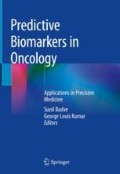Abstract
The Hedgehog (Hh) pathway mediates normal patterning during embryogenesis and contributes to tissue homeostasis after development is complete. Aberrant activation of Hh signaling has been implicated in a wide variety of malignancies and is involved in multiple cellular processes important in carcinogenesis and tumor progression. Strikingly, mutations that constitutively activate the Hh pathway cause the nevoid basal cell carcinoma (BCC) syndrome (NBCCS), which is a heritable cancer predisposition syndrome that greatly increases the risk of developing BCCs and medulloblastomas. Preclinical data have demonstrated that Hh inhibition is an attractive target in cancer, but the translation of this research to the clinic has been a challenge. Despite a number of negative clinical trials, Hh-directed therapies are proven to be effective in cancers reliant on this pathway, and future trials must be designed to properly select for patients with Hh-driven tumors to increase the likelihood of a positive result. Here, we review the mechanisms underlying the pathway and different strategies used to inhibit Hh signaling. We also discuss the role that the Hh pathway plays in carcinogenesis and carefully examine available trial data to understand why clinical applications have lagged behind preclinical successes. Finally, we address the future of Hh-directed therapies and factors that will be critical to effectively expanding their use for the treatment of cancer patients.
Access this chapter
Tax calculation will be finalised at checkout
Purchases are for personal use only
References
Lin VTG, Pruitt HC, Samant RS, Shevde LA. Developing cures: targeting ontogenesis in cancer. Trends Cancer. 2017;3(2):126–36.
Briscoe J, Therond PP. The mechanisms of hedgehog signalling and its roles in development and disease. Nat Rev Mol Cell Biol. 2013;14(7):416–29.
Hanna A, Shevde LA. Hedgehog signaling: modulation of cancer properties and tumor microenvironment. Mol Cancer. 2016;15:24.
Shevde LA, Samant RS. Nonclassical hedgehog-GLI signaling and its clinical implications. Int J Cancer. 2014;135(1):1–6.
Pan Y, Wang B. A novel protein-processing domain in Gli2 and Gli3 differentially blocks complete protein degradation by the proteasome. J Biol Chem. 2007;282(15):10846–52.
Kim J, Aftab BT, Tang JY, Kim D, Lee AH, Rezaee M, et al. Itraconazole and arsenic trioxide inhibit hedgehog pathway activation and tumor growth associated with acquired resistance to smoothened antagonists. Cancer Cell. 2013;23(1):23–34.
Smith MJ, Beetz C, Williams SG, Bhaskar SS, O’Sullivan J, Anderson B, et al. Germline mutations in SUFU cause Gorlin syndrome-associated childhood medulloblastoma and redefine the risk associated with PTCH1 mutations. J Clin Oncol. 2014;32(36):4155–61.
Tang JY, Ally MS, Chanana AM, Mackay-Wiggan JM, Aszterbaum M, Lindgren JA, et al. Inhibition of the hedgehog pathway in patients with basal-cell nevus syndrome: final results from the multicentre, randomised, double-blind, placebo-controlled, phase 2 trial. Lancet Oncol. 2016;17(12):1720–31.
Kaye SB, Fehrenbacher L, Holloway R, Amit A, Karlan B, Slomovitz B, et al. A phase II, randomized, placebo-controlled study of vismodegib as maintenance therapy in patients with ovarian cancer in second or third complete remission. Clin Cancer Res. 2012;18(23):6509–18.
Robinson GW, Orr BA, Wu G, Gururangan S, Lin T, Qaddoumi I, et al. Vismodegib exerts targeted efficacy against recurrent sonic hedgehog-subgroup medulloblastoma: results from phase II pediatric brain tumor consortium studies PBTC-025B and PBTC-032. J Clin Oncol. 2015;33(24):2646–54.
Ellison DW, Dalton J, Kocak M, Nicholson SL, Fraga C, Neale G, et al. Medulloblastoma: clinicopathological correlates of SHH, WNT, and non-SHH/WNT molecular subgroups. Acta Neuropathol. 2011;121(3):381–96.
Author information
Authors and Affiliations
Corresponding author
Editor information
Editors and Affiliations
Rights and permissions
Copyright information
© 2019 Springer Nature Switzerland AG
About this chapter
Cite this chapter
Lin, V.T.G., Lama-Sherpa, T.D., Shevde, L.A. (2019). Hedgehog Signaling in Carcinogenesis. In: Badve, S., Kumar, G. (eds) Predictive Biomarkers in Oncology. Springer, Cham. https://doi.org/10.1007/978-3-319-95228-4_24
Download citation
DOI: https://doi.org/10.1007/978-3-319-95228-4_24
Published:
Publisher Name: Springer, Cham
Print ISBN: 978-3-319-95227-7
Online ISBN: 978-3-319-95228-4
eBook Packages: MedicineMedicine (R0)

